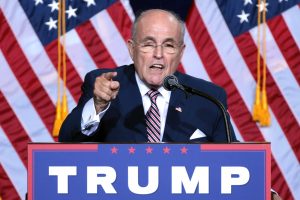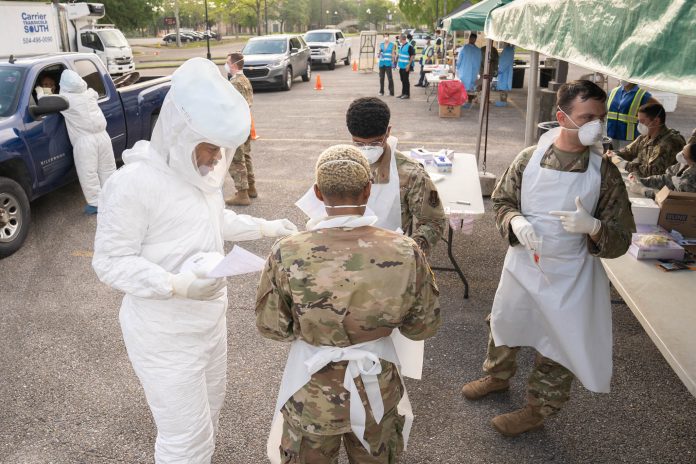As the Coronavirus has spread in the US, leading to shelter in place policies in several cities, social distancing and stay at home practices throughout almost the entire country and a downturn in the economy that is likely to get worse, it is natural that some have begun thinking about what impact this will all have on the election. Some of President Donald Trump’s strongest critics have expressed the fear that the President, recognizing both the reality of the challenges of conducting an election in these circumstances, as well as possibly his declining poll numbers, will cancel or indefinitely postpone the election.
This is extremely unlikely to happen for at least two reasons. First, according to most election law experts, the president cannot simply cancel national elections. Neither the Constitution nor any law allows for this. Second, for Republican allies of the President canceling the election is an unnecessarily bold step, not because Trump has some kind of moral compass or faith in democracy, but because it would be much easier to simply take advantage of the changed environment to suppress Democratic votes.
The US, unlike most democratic countries does not have a central nonpartisan agency that conducts elections. Instead, contrary to internationally recognized best practices, elections in the US are generally run by partisan local authorities. This means that Democratic or Republican elected officials in each state make decisions about how elections are administered, voters register, what hours polls are open and the like.

Following the September 11th attacks, then New York City mayor and current political ally of Donald Trump, Rudy Giuliani sought to extend his second and final term in office by postponing the election. (Flickr/Gage Skidmore/CC BY-SA 2.0)
There is no precedent for crafting electoral reform to keep people safe from something like the Coronavirus, but one doesn’t have to look too far into the past to see at least one Republican politician trying to change election law in the face of a national crisis to remain in office. Following the September 11th attacks, then New York City mayor and current political ally of Donald Trump, Rudy Giuliani sought to extend his second and final term in office by postponing the election.
If the Coronavirus crisis continues into the fall, each state will need to make contingency plans for the election. In some states this will be relatively straightforward. For example, California has a Democratic governor, Democratic majorities in both houses of the legislature and a relatively strong record of making it easier for people to vote-this is also considered a best practice among international experts. It is likely that the California Governor Gavin Newsom and the legislature would do something like universal vote by mail that would make it possible for all Californians to safely vote. Other deep blue states, such as New York or Massachusetts would probably do the same.
In several other states the situation could be quite different. Given the recent history of the Republican Party seeking to put barriers in front of young people, African Americans and Latinos seeking to exercise their franchise, the states where the Coronavirus crisis could lead to greater voter suppression having a major effect on the presidential election are those swing states that have Republican governors and state legislatures-Arizona, Florida, Georgia and Ohio, or where there are Democratic governors, but Republican control of the state legislature-Michigan, North Carolina, Pennsylvania and Wisconsin. If recent actions to make it harder for some groups to vote in states like Ohio, Georgia and Wisconsin are any guideline, it is very possible the laws passed in these states, to adjust to the Coronavirus crisis will have a similar impact.
It is still too early to know that the effect of the Coronavirus will be, but we must be prepared for how it can be used to further undermine our already tenuous democratic institutions
Republicans in these states could easily, under the guise of public safety concerns, make it more difficult for key Democratic constituencies to vote. For example, they could make vote by mail universal but require extensive and time consuming documentation in order to receive a ballot. They could make voting places open for longer hours or for several days leading up to the election, but put fewer of these polling places in non-white communities, college campuses and the like. Republicans could craft laws calling for police at polling places to make sure social distancing is observed. Police presence at voting places is a reliable way to reduce African American voter turnout in several parts of the country. More simply, Republican operatives could float rumors that elections are canceled and postponed in heavily Democratic communities. These examples are meant to be illustrative, but they are not at all out of line with what we have seen in recent years from states controlled by Republicans.
Changes to how these, and other, states administer elections will have a substantial impact on turnout and therefore on election outcomes from the presidency to the local level. While it is easy to learn about, and mobilize against, even in the age of social distancing, what would be a clumsily thought through White House led effort to cancel or postpone the election, it would be much more difficult to stop several states from passing what would be presented as rational responses to a health crisis, but would also be the next step in the Republican voter suppression agenda. It is still too early to know that the effect of the Coronavirus will be, but we must be prepared for how it can be used to further undermine our already tenuous democratic institutions.
www.lincolnmitchell.com
Follow me on Twitter at http://twitter.com/LincolnMitchell

